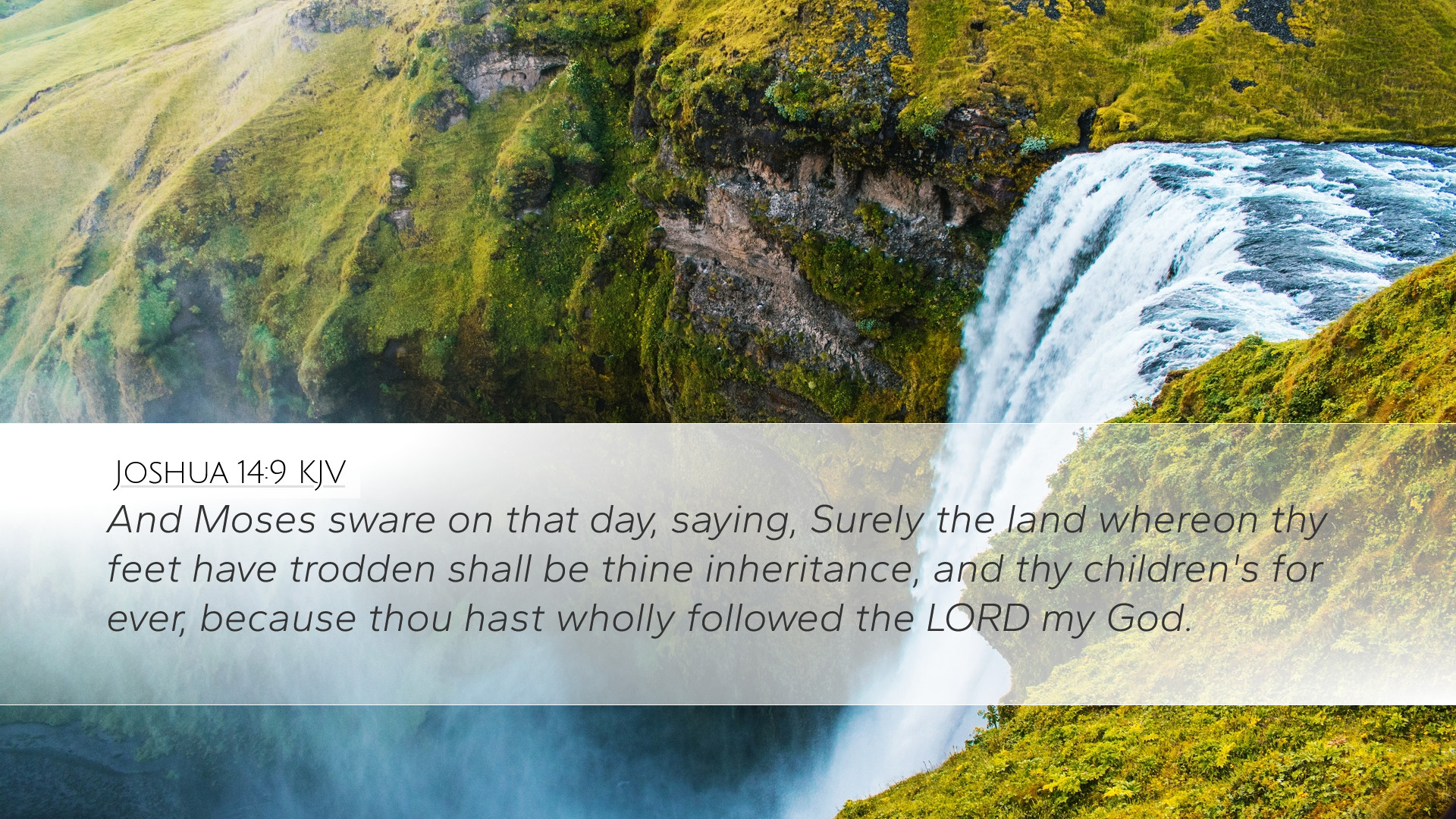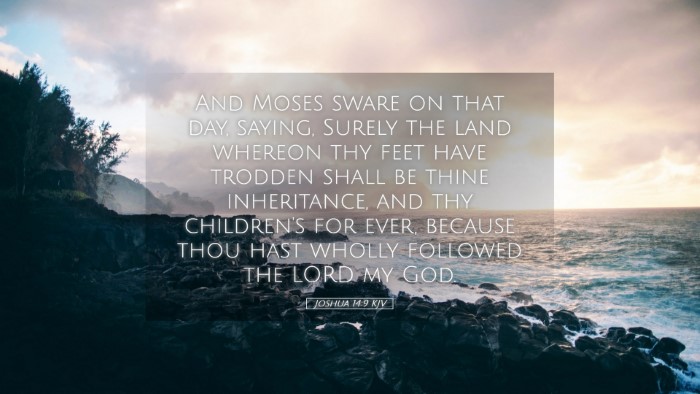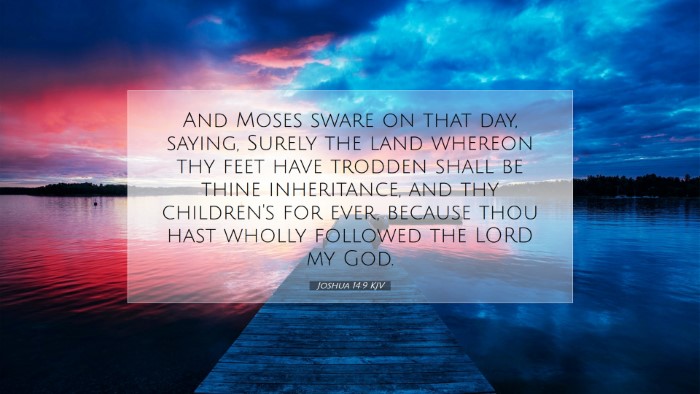Old Testament
Genesis Exodus Leviticus Numbers Deuteronomy Joshua Judges Ruth 1 Samuel 2 Samuel 1 Kings 2 Kings 1 Chronicles 2 Chronicles Ezra Nehemiah Esther Job Psalms Proverbs Ecclesiastes Song of Solomon Isaiah Jeremiah Lamentations Ezekiel Daniel Hosea Joel Amos Obadiah Jonah Micah Nahum Habakkuk Zephaniah Haggai Zechariah MalachiJoshua 14:9
Joshua 14:9 KJV
And Moses sware on that day, saying, Surely the land whereon thy feet have trodden shall be thine inheritance, and thy children's for ever, because thou hast wholly followed the LORD my God.
Joshua 14:9 Bible Commentary
Commentary on Joshua 14:9
Text of Joshua 14:9 (KJV): "And Moses sware on that day, saying, Surely the land whereon thy feet have trodden shall be thine inheritance, and thy children's for ever, because thou hast wholly followed the LORD my God."
Contextual Overview
This passage occurs after the Israelites have wandered in the wilderness and are now poised to enter the Promised Land. Joshua, a faithful servant of the Lord, reflects on the promises made by Moses to Caleb, highlighting the significance of faithfulness and obedience to God's command.
Insights from Public Domain Commentaries
Matthew Henry's Commentary
Matthew Henry emphasizes the importance of divine promises and the faithfulness of God to His words. In this verse, he notes that the promise made to Caleb was not just about land but about reward for his unwavering loyalty.
- Divine Assurance: Henry points out that God's promises are sure and will be fulfilled. Caleb’s inheritance serves as a testament to the truth of God’s word.
- Condensed Legacy: The mention of Caleb and his descendants inheriting the land underscores the significance of spiritual legacy passed down through generations.
- Loyalty Rewarded: Henry concludes that Caleb’s faithfulness ("wholly followed the LORD") acts as a model for believers today to commit fully to God's purposes.
Albert Barnes' Notes on the Bible
Albert Barnes highlights the historic aspect of this promise, placing it within the context of the Israelite's journey and God’s guidance through Moses.
- Moses' Vow: Barnes interprets Moses' oath as a formal declaration that binds the promise, reinforcing that Caleb’s actions warranted special recognition due to his courage and faith.
- Physical and Spiritual Ownership: The act of "treading" signifies both the literal walking upon the land and a metaphor of claiming God-given promises through faith in a journey of obedience.
- Generational Impact: The mention of Caleb's children inheriting the land is significant in understanding the multi-generational effects of obedience and faith in God’s promises.
Adam Clarke's Commentary
Adam Clarke elaborates further on the personal implications of this verse for Caleb and highlights the faithfulness of Caleb, whom he considers a model of perseverance.
- Personal Commitment: Clarke notes Caleb’s unwavering faith, having remained steadfast despite the challenges and doubts of others, which showed his character and trust in God’s ability to deliver.
- Contextual Faithfulness: He explains that the great factor in this promise was Caleb's full-hearted service to God, representing the ideal relationship of a believer to God’s will.
- Encouragement for Believers: Clarke encourages contemporary believers to take Caleb’s example to heart, urging them to trust God's promises and continue to pursue His will without deviation.
Theological Reflections
This verse serves as a poignant reminder that God honors those who honor Him through their faith and actions. It holds profound implications for pastoral ministry.
- Faithfulness to God: Just as Caleb was rewarded for his diligence, modern believers are called to serve God wholly and to trust in His plans, even when circumstances seem daunting.
- The Role of Leadership: This verse highlights the responsibility of leaders (like Moses) to affirm and bless the faithful, ensuring they receive their due inheritance and recognition.
- Inheritance of Promises: The theme of inheritance communicates that the promises of God extend beyond the individual to the community, signifying the collective blessings that result from individual faithfulness.
Conclusion
Joshua 14:9 is a rich verse not only for its historical context but also for the powerful theological implications it carries. It becomes essential reading for any scholar or pastor seeking to deepen their understanding of God's faithfulness and the principle of rewards for faithfulness.


